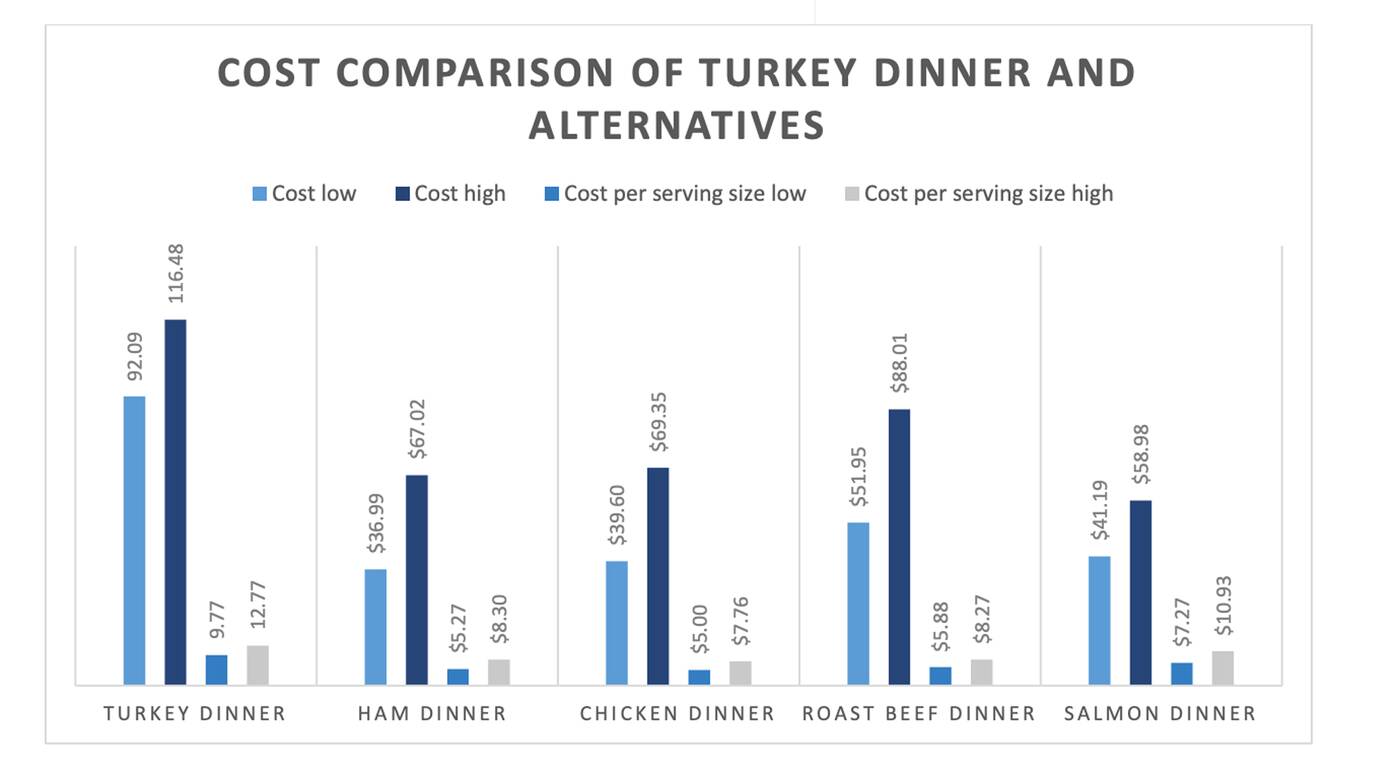
Canadians can expect shrinkflation and high prices for holiday grocery runs
As Canadians head to the grocery store for holiday meal shopping, many will likely be weary of their pocketbooks.
Although the federal government has introduced measures to stabilize food prices nationwide, people are still experiencing sticker shock regarding Canada's grocery costs.
And it's not just prices that have Canadians feeling ripped off during their grocery runs. Product sizes and contents are also getting smaller due to "shrinkflation," and some food manufacturers have even turned to replacing ingredients in products to cut costs.
Sylvain Charlebois, director of the agri-food analytics lab at Dalhousie University, spoke to us about what shoppers can expect when it comes to grocery costs and product value during their next holiday shopping run.
Deck the halls with shrinkflation
From baked goods to chocolate, it is no secret that shrinkflation is hitting hard at Canadian grocery stores, and it will likely impact the items you pick up for your holiday meals.
There's a good chance that any item you're buying processed and packaged this holiday season "will likely have been shrinkfated at some point," stated Charlebois.
Some prime examples include stuffing for turkey, pie fillings, and many snack foods.
The most recent example of shrinkflation to make headlines is Kraft Dinner. Back in October, Kraft said it was reducing the popular boxed mac and cheese contents by 25 grams for various reasons, including the cost of ingredients, supply chain, and labour force while keeping prices relatively low.
Kraft Dinner reduces portion sizes and Canadians are calling out shrinkflation 😳 https://t.co/m9SmSPbyea #Canada #Shrinkflation #PortionSize #Kraft #KraftDinner
— blogTO (@blogTO) November 29, 2023
But Charlebois explained that food manufacturers are trying to justify their shrinking product sizes by arguing that the size of Canadian families and gatherings just aren't as large as they used to be.
"So portion sizes or portion numbers aren't necessarily a critical selling point anymore," he said.
For instance, a portion size that claims it will serve "six people" doesn't matter as much to manufacturers, noted Charlebois.
"Shrinkflation is not necessarily a moral factor for manufacturers. They don't think of it as an issue for the holidays because people aren't necessarily eating as much during the holidays as in groups, or we don't see larger families as we used to."
"Skimpflation" is another phenomenon Canadians will likely notice while shopping for holiday ingredients. This is when a manufacturer replaces more expensive ingredients with cheaper alternatives.
Some shoppers may notice this with pie filling, said Charlebois.
"ED Smith is a good example of that. The people who make their own pumpkin pie will realize there's a lot more water in the filling today. …You'll find a product may be the same size, but the ingredient list changed, and they probably have adulterated their product with cheaper ingredients, which also upsets people," he explained.
How much will a typical holiday dinner cost this year?
Charlebois and the Dalhousie Agri-Food Lab also released a report on Thursday morning examining the impact of Canada's rising food prices on meals during the holiday season.
The report states that this year's prices for holiday meals are "higher than they have been in the past."
The lab notes that the typical Canadian holiday meal usually consists of turkey and vegetable sides, followed by a dessert.
Charlebois and his team estimate that the ingredients for a traditional holiday meal for four to six people will cost $104.85 on average.
And while Canada's latest Consumer Price Index (CPI) report indicates food prices are dropping, the items for holiday meals in particular are "experiencing similar or higher price increases," noted the report.
Turkey costs are up by about 5 per cent, potatoes saw an increase of 6.6 per cent, and the price of carrots has jumped 12.8 per cent.
However, when the team examined the cost per unit for a full turkey dinner with gravy, rolls, fruitcake, and eggnog, they found that the cost per person added to about $9.48.

Dalhousie University Agri-Food Analytics Lab
The lab noted that to cut costs, Canadians can look for alternatives for their holiday meals.
For example, replacing a holiday turkey with stuffing and ham will lower the cost per person to $7.79.
xalien/Shutterstock
Latest Videos
Latest Videos
Join the conversation Load comments







